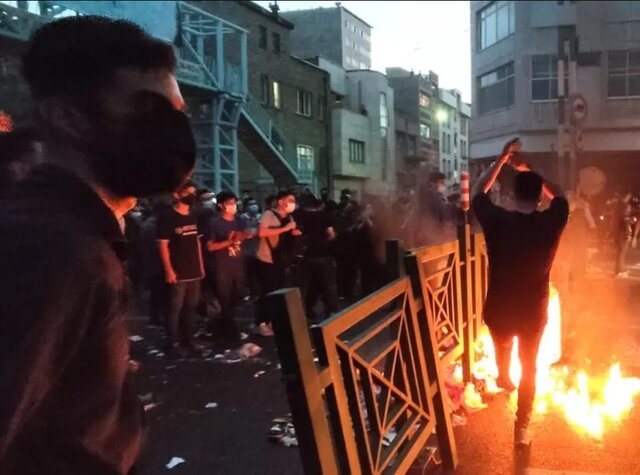The protests and clashes in Iran are already beginning to develop in a manner similar to that in Syria in 2011, i.e. they could develop into an uprising followed by civil war. No, we will not spread the unreliable news that Iranian parliamentarians have called for the execution of 14,000 protesters, as reported by the media. Even towards their enemies, Muslims should not spread blatant lies, so it must be acknowledged that the regime’s statement did not contain such a call, but rather a general appeal not to be lenient towards enemies of the people.
Nevertheless, this indicates that events are unfolding according to the aforementioned scenario. And an indication of this, especially for Sunni Muslims, is the speech of one of their moral and unofficial political leaders in Iran, Maulana Abdolhamid, during the Friday sermon he delivered at the Zahedan Mosque. The sheikh called on the Iranian regime to stop its brutal suppression of popular protests and to enter into dialogue with the demonstrators. He also described the existing system and constitution in Iran as outdated and called for a referendum to determine the will of the people regarding the future of Iran.
In reality, just like what Assad, Erdogan and Davutoglu proposed at the beginning of their respective crises, namely dialogue with the protesters and changes within the country, what the Sheikh is proposing here is a way to avoid civil war and preserve Iran on renewed principles. These principles should obviously include the elimination of repressive structures, the release of political prisoners, political freedom, competition, and broad regional and national autonomy in a country where Persians and Shiites make up only about 60% of the population.
However, just as in the case of the Assad regime, which missed such an opportunity, there is no doubt that the actions of the neo-Khomeinist regime will be similar, leading Iran to civil war and disintegration. This is evidenced by the hysterical reaction of the regime’s media to these proposals.
But in a broader context, it should be noted that what is happening in Iran right now could be the first eruption of a new wave sweeping across the region. Last time it was the Arab Spring, but this time it could be international and not only or even primarily affect Arab countries.
In this regard, it is noteworthy that during the recent congress of Russian opposition deputies in Yablonev, Poland, it was announced that not only a future interim government of Russia would be formed, but also an international coalition against pro-Kremlin regimes in the post-Soviet space. This declaration was signed by representatives of Ichkeria (in the version of Ahmed Zakayev) as well as the leading Muslim opposition force in Tajikistan — the Party of Islamic Renaissance (PIVT). In addition, representatives of the Kazakh and Turkmen oppositions have announced their intention to join the alliance.
This event should not be underestimated, as the leader of the PIVT, Muhiddin Kabiri, who signed the declaration, had been trying for many years to find common ground with the Kremlin, considering it a possible mediator in relations between the Tajik regime and the opposition. At some point, however, it became clear that the Kremlin was only a guarantor of the repressive Rakhmon regime, and so the PIVT turned to an alliance with those seeking to overthrow the Putin regime.
Thus, it is quite possible that the revolutionary wave emanating from Iran will not stop there and will significantly change the political landscape of the region. This wave will sink some and lift others to the surface.

